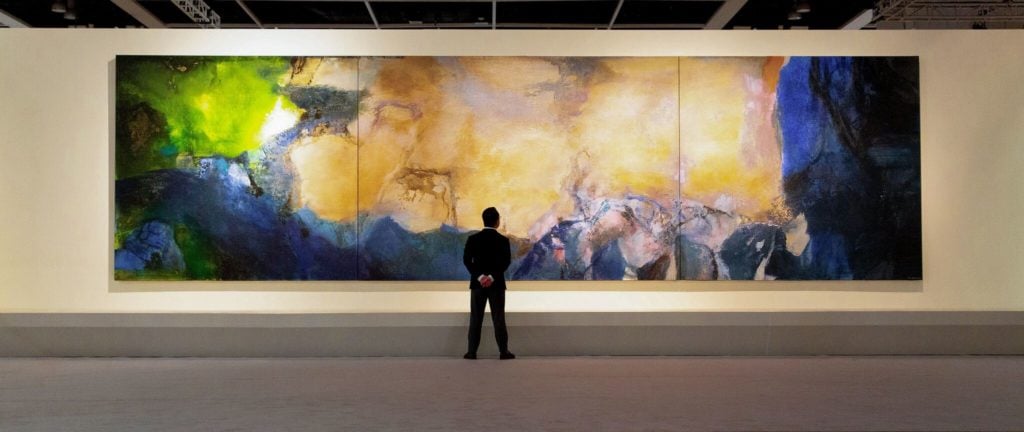Art World
Zao Wou-Ki’s Monumental Triptych Sells for $65 Million at Sotheby’s Record-Setting Sale in Hong Kong
The work was the headlining lot of the house's $200 million Modern and contemporary art auction.

The work was the headlining lot of the house's $200 million Modern and contemporary art auction.

Henri Neuendorf

Zao Wou-Ki’s monumental abstract painting Juin—Octobre 1985 (1985) sold for $65 million at Sotheby’s Hong Kong on Sunday, setting a new auction record for the Chinese-French artist, and exceeding its pre-sale high estimate of $45 million. The painting was part of Sotheby’s Modern and contemporary art auction, which brought in $200 million, the highest sales total for an evening sale in Hong Kong to date.
The consignor, Taiwanese manufacturing executive Chang Qui Dun, reportedly made 28 times the original price paid for the work. He reportedly bought the 33-by-nine-foot triptych in 2005 for $2.3 million, netting him a staggering 2,735 percent return, according to Bloomberg. The mystery buyer has not yet been identified.
The artist, who died in 2013, spent most of his life in France, where he developed a distinctive Abstract-Expressionist painting style that channeled both Eastern and Western artistic influences. As a result, Wou-Ki’s paintings tend to appeal to buyers from all across the globe.
“With so many new benchmarks set here tonight, it is evident that Asian appetite for great examples of Modern and contemporary art—be they Asian or Western—is voracious,” Patti Wong, chairman of Sotheby’s Asia said in a statement, adding that the result “represents another big leap forward for Asian appreciation in this field.”
The record-breaking work was commissioned in 1985 by Wou-Ki’s close friend and fellow Chinese expat living in France, the architect I.M. Pei. The three-paneled work is the largest composition the painter made during his lifetime.
In light of the new record price, Hong Kong dealer Pascal de Sarthe compared the painter to the greats of Modernism. “At $65 million, Zao Wou-Ki joins the ranks of his postwar American contemporaries like [Willem] de Kooning, Mark Rothko, and Barnett Newman,” he told Bloomberg.